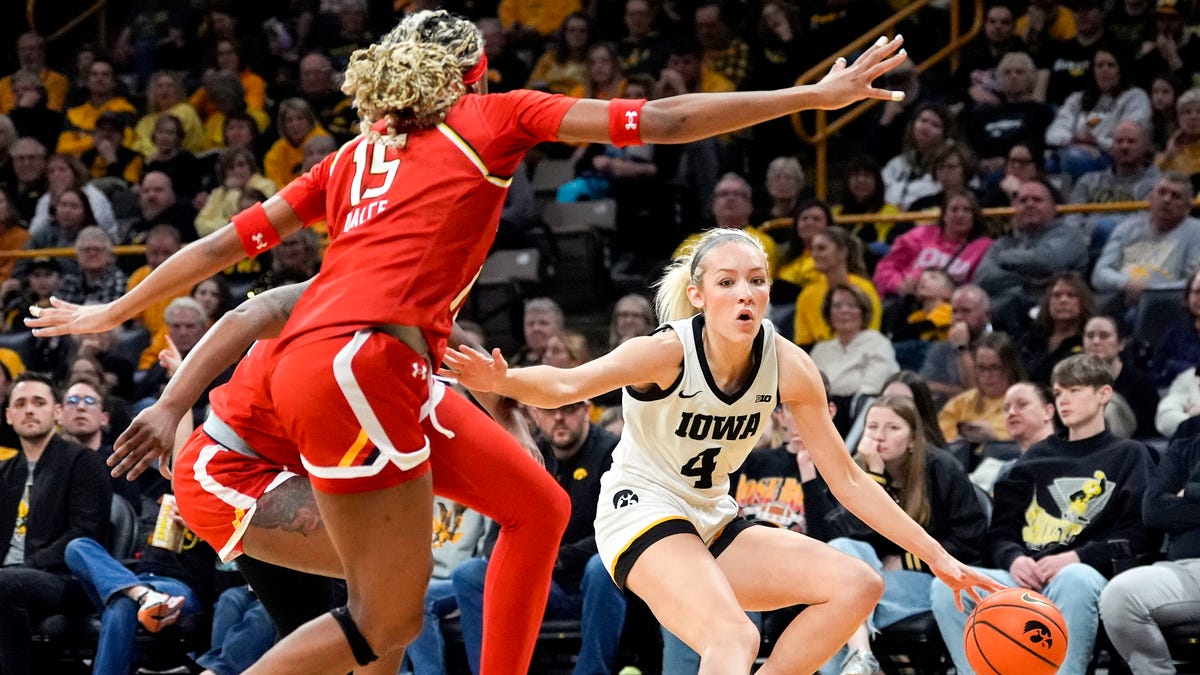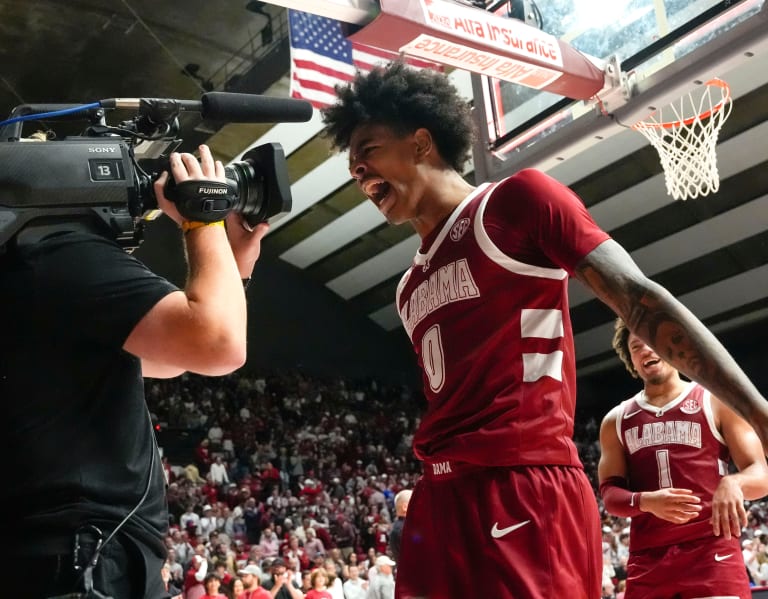Iowa
Iowa Bishop Suggests ‘Case-by-Case Approach’ to LGBT Accompaniment

‘We clearly do not intend to do things like bless same-sex unions or approve of homosexual acts,’ Bishop Zinkula told CNA.
An Iowa bishop issued new guidance for parishes, schools and other institutions in his diocese, which calls for a “case-by-case approach” in the pastoral “accompaniment of sexual and gender minorities” while remaining “faithful to the Church’s teachings on sexuality and the nature of the human person.”
Bishop Thomas Zinkula of the Diocese of Davenport promulgated the new guidance on Oct. 4, two weeks before he is set to depart from the diocese to begin his new role as the archbishop of Dubuque on Oct. 18. The guidance stemmed from the work of a committee set up in January 2021 to address sexual and gender-identity issues arising in schools and parishes.
“The purpose of the guidelines is precisely both to affirm Church teaching and yet to find a meaningful way for pastors, principals and others to minister to those they encounter in delicate pastoral situations,” Bishop Zinkula told CNA.
“We hope to accompany them without denying their full personhood and dignity or Catholic teaching,” the bishop added.
When handling these topics, the guidance emphasizes that “we are not dealing simply with ideologies or issues” but instead with “people who are created in the image and likeness of the Creator,” adding that “they are beloved children of God.”
It suggests giving people “the benefit of the doubt in regard to their experiences and motivations,” arguing that “sexual minorities” who want a relationship with the Church “are not trying to sabotage our institutions or challenge our beliefs.”
According to the guidance, the diocesan pastoral approach is to “show respect for the dignity of all people; acknowledge people and their difficult circumstances; listen for greater understanding; involve others in the decision-making process; and work with individuals, families, and caretakers on a case-by-case basis.” In adherence to a case-by-case approach, the guidance states that one of the principles is making “reasonable and appropriate accommodations when possible.”
Such accommodations, however, must always coincide with Church teaching, according to the bishop.
“We clearly do not intend to do things like bless same-sex unions or approve of homosexual acts,” Bishop Zinkula told CNA.
The guidance lists other principles, which include respect for the dignity of the human person, an acknowledgment of “people who experience differences in sexual orientation or gender discordance,” a commitment to “loving people first” and listening, and involving others, such as families, professionals and collaborators in the discernment process.
According to the guidance, the Church has a “special responsibility to look out for the physical, emotional, and spiritual well-being of those entrusted to our care,” and “we must strive to protect lives and souls from harm.”
In a letter to the faithful that Bishop Zinkula published along with the new guidance, the bishop said he formed the committee amid clergy, school personnel and parish staff, expressing their desire to learn how to better minister to people who “are experiencing gender discordance or differences in sexual orientation.”
The bishop added in his letter that the committee “sought out a number of people who live on this periphery, namely individuals identifying as LGBTQ+ and their families,” to hear “about their experiences and [learn] what they hope for from the Church.” He said the committee reviewed theological, medical and human resources articles, attended online webinars, and reviewed statements and policies from the Vatican, the U.S. Conference of Catholic Bishops, and other dioceses.
Bishop Zinkula’s approach to these issues differs a bit from the neighboring Diocese of Des Moines, which sits just to the west of the Diocese of Davenport.
In January, the Diocese of Des Moines took a more hard-line approach to issues related to gender ideology, in which it banned the use of puberty blockers, transgender pronouns, and the use of bathrooms that do not align with a person’s biological sex within its schools.
However, the diocese used language similar to the Diocese of Davenport in some regards, such as an emphasis on respecting “the personal dignity of individuals who may express tension or concerns about their biological sex.”

Iowa
Iowa 97, Nebraska 87: Payton Sandfort's Overtime Revenge

Iowa 97, Nebraska 87: Payton Sandfort’s Overtime Revenge
IOWA CITY — Behind a furious second-half comeback and outlasting Nebraska (12-3,2-2) in overtime, Iowa (11-4, 2-2) took the victory over the Cornhuskers, 97-87 on Tuesday night in Carver-Hawkeye Arena.
Here are three takeaways from the win.
Payton Sandfort: Confirmed Back
After scoring just two points on 1-9 shooting in Iowa’s 116-85 loss to Wisconsin on Friday, Sandfort had a rough first half. Over the first 20 minutes, it looked as though the senior may continue his cold streak, as he started 0-2 with zero points.
“At halftime, I was pretty upset,” Iowa’s second-leading scorer said postgame. “I went into the locker room and acted like I was going to the bathroom, but I read some Bible verses, read some notes to myself. Once I saw one go in [in the second half], I just felt like myself again.”
The first triple he made after the half was a small miracle in itself — and it showed Sandfort that he was ready to break through the rough shooting streak.
“I got a roll off the top of the backboard,” Sandfort smiled. “It seems like ever shot this year has rimmed out. From there I knew I was going. I was like ‘Alright. It’s about time.’”
It was time, indeed. Sandfort proceeded to score 30 points in the second half and overtime, shooting 8-13 in the second half, including going 6-of-9 from three. He earned some pretty high praise from his head coach afterward, too.
“The only thing close to it that I’ve seen, (Jarod) Uthoff had 30 in the first half at Iowa State a couple years ago. More than a couple years ago,” Fran McCaffery said postgame. “He made big shots in the second half that just changed everything.”
McCaffery continued, Sandfort’s scoring was generated without too much of a concerted effort by he and the staff.
“We wanted to get him going, you know, so we tried to run some stuff for him. But the way they play defense, it has to happen naturally,” he said. “You got to move it, you got to push it in transition, he got some there. We did run some stuff for him, so we got some stuff there. But for the most part, you know, we just got to move it, move it, move it and find him.”
Clawed Back
Thanks in part to Sandfort, Iowa rallied back from 15-point deficit with 14:54 left. The Waukee, Iowa native pointed to a lack of defensive effort for the 52-37 Nebraska lead.
“To start the half, we were pretty lax defensively, Sandfort said. “We were making bad plays, turning the ball over.”
McCaffery pushed the team to stay the course.
“Well, there’s plenty of time,” McCaffery said, who remained calm despite trailing by double-digits. “There’s no need to panic, you know, we’ve got a group with great character. They were locked in during the timeout. Obviously we scored the next five, and that changes everything.”
Sandfort relayed a similar message to his head coach.
“I just kind of told everybody, we’re gonna be fine,” he said. “This is game 15, we got more than half the season left. Let’s just relax, let’s change the season right now, and let’s just get gritty. And we got gritty guys, and I think we’ve seen it all season, except for that Wisconsin game. But we really gritted down.”
He pointed beyond his own heroic performance as to how the team pulled off the win.
“Everybody had to contribute, but we stayed together,” he added. “And that’s the mantra, bad teams fall apart when things go bad. And I just tell everybody, if we stay together as a team and block out what everybody’s saying, just be in the room, be present, be where your feet are, then it always turns out all right.”
It almost didn’t turnout alright. After the ferocious comeback and holding a three-point lead with 3.5 seconds remaining, Nebraska’s Brice Williams — who finished with a team-lead 28 points — drilled a buzzer-beating three-pointer to send the game into overtime.
“Right away, we had a chance to get on the floor and get the loose ball,” Nebraska head coach Fred Hoiberg said postgame. “We didn’t do it, we didn’t get it. And they got out again, and transition was the problem with us.”
The Hawkeyes did get out and get going in OT, outscoring the Cornhuskers 21-11 in the final five minutes. Sandfort was proud of his team’s post-regulation effort.
“Just knowing that we can do it. Especially after what happened at the end of regulation the way that we came together in overtime — it was really player-led, the way that we were talking to each other,” Sandfort said. “The coaches put us in good spots, but the way that we stayed together, the five of us on the floor and the guys on the bench,(3:55)was really what pushed us over the edge. And I hope we know that we can build on that and keep moving forward.”
Don’t Forget Di
Ultimately the win doesn’t happen without the efforts of Dix and Owen Freeman.
Alongside Sandforts 30-point second-half and overtime, Dix put up a team-lead 31 points, including nine points in overtime to help seal the victory. He went 10-14 from the field and 7-10 from the three point line.
“I think Dix is a hell of a player,” Hoiberg said postgame. “I think he’s the most underrated player in this league.”
The statement wasn’t a shock to Sandfort, who has seen Dix develop from a gangly freshman one of the Hawkeyes’ three best players.
“He’s about as good as he gets from a toughness standpoint, from a skill standpoint,” Sandfort said. “Nothing rattles him, nothing makes him excited. He’s just out there playing ball. And the things that he’s battled through, I think, have made him tough and(5:00)made it so that he doesn’t rattle him.”
And Dix played all but 22 seconds of the game. With Drew Thelwell out due to a “tweaked lower leg” injury and Cooper Koch missing the game due to a previously noted medical condition, Dix was forced to play nearly all 45 minutes.
“I’m going to need an ice bath,” Dix joked. “I feel good that we won. My body hurts a little bit, but I’m good.”
“He was exhausted,” McCaffery added. “I mean he played as hard as he could every possession at both ends of the floor — and made phenomenal decisions, made big shots, made big plays. He was really, really special. … Steals, assists, rebounds. That’s who he is.”
Dix’s 31 points paired with Sandfort’s scoring effort resulted in Iowa’s first duo to score 30+ points since Jordan Bohannon and Keegan Murray did the same at Maryland in 2022.
“That’s crazy,” Dix said. “Payton was going crazy in the second half, so we just kept feeding him. In overtime, I got the ball in my hands a little bit more. He also just took over. It was great.”
NEXT: Iowa will face Indiana (12-3, 3-1) in Carver Hawkeye-Arena on Saturday, January 11. The game will be broadcast at 7 pm CST on Fox.
Iowa will host a high-priority official visitor this weekend for the matchup with the Hoosiers.
Don’t miss out on any of our exclusive football, basketball, and recruiting coverage. Sign up with Hawkeye Beacon here.
Iowa
HawkCast Ep. 119 – MARK GRONOWSKI is a HAWKEYE: Iowa Lands MAJOR QB

Eliot and Ross breakdown the impact of the Hawkeyes landing South Dakota State transfer quarterback Mark Gronowski in the transfer portal.
Is Gronowski immediately QB1 or Iowa?, how he elevates the floor and the ceiling of the QB room, why his accomplishments set him apart from previous Iowa transfer targets and acquisitions, shout out to Tim Lester/Brad Heinrichs/Tyler Barnes, what’s next with the Hawkeyes and the portal, plus more.
Iowa
Iowa football: Kaden Wetjen wins 2024 Jet Award for nation’s top return specialist

Video: Kaden Wetjen talks punt return touchdown vs. Northwestern
Kaden Wetjen discusses a variety of topics following Iowa’s win over Northwestern.
IOWA CITY — On Tuesday, Kaden Wetjen was announced as the winner of the 2024 Jet Award, which honors the most outstanding return specialist in college football.
Wetjen became a weapon on special teams in 2024 as the Hawkeyes’ full-time punt and kickoff return man. He took a punt for a touchdown against Northwestern in October. Then he returned a kickoff to the house in Iowa’s matchup against Missouri in the Music City Bowl.
Wetjen finished the 2024 season amassing more than 1,000 combined kickoff and punt return yardage.
A standout at Williamsburg High School, Wetjen’s recruiting process in high school was not chock-full of college football’s elites. Division III programs wanted him. NAIA-level Grand View offered. Seth Wallace talked to Wetjen about walking on at Iowa.
But Wetjen opted to go to junior college, taking his talents to Iowa Western. His time there earned him some recruiting attention but it still was relatively limited. Iowa came around again.
Ultimately, Wetjen decided on a preferred walk-on opportunity with the Hawkeyes over scholarship offers elsewhere, the most prominent of which was FBS-level UMass.
Wetjen worked his way into a bigger role at Iowa over time. He didn’t play in his first season, but in 2023 he led Iowa in kickoff returns and filled in at punt return following Cooper DeJean’s season-ending injury. In 2024, Wetjen had his best season and became one of the nation’s premier returners.
For the second consecutive season, a Hawkeye was named Big Ten’s Rodgers-Dwight Return Specialist of the Year. DeJean took the honor in 2023, Wetjen did it in 2024.
Ahead of the Music City Bowl, Wetjen indicated he was likely to return to Iowa in 2025, but not yet certain.
“The plan is to come back,” Wetjen said in December. “But I’ll say I’m 98% sure.”
If Wetjen does return, Iowa is projected to return multiple key pieces of its 2024 special teams unit.
Drew Stevens, who was 20-of-23 on field goals last season, is set to come back, along with punter Rhys Dakin, who gained meaningful experience as a freshman.
Follow Tyler Tachman on X @Tyler_T15, contact via email at ttachman@gannett.com
-

 Business1 week ago
Business1 week agoThese are the top 7 issues facing the struggling restaurant industry in 2025
-

 Culture1 week ago
Culture1 week agoThe 25 worst losses in college football history, including Baylor’s 2024 entry at Colorado
-

 Sports7 days ago
Sports7 days agoThe top out-of-contract players available as free transfers: Kimmich, De Bruyne, Van Dijk…
-

 Politics6 days ago
Politics6 days agoNew Orleans attacker had 'remote detonator' for explosives in French Quarter, Biden says
-

 Politics5 days ago
Politics5 days agoCarter's judicial picks reshaped the federal bench across the country
-

 Politics4 days ago
Politics4 days agoWho Are the Recipients of the Presidential Medal of Freedom?
-

 Health3 days ago
Health3 days agoOzempic ‘microdosing’ is the new weight-loss trend: Should you try it?
-

 World1 week ago
World1 week agoIvory Coast says French troops to leave country after decades


















